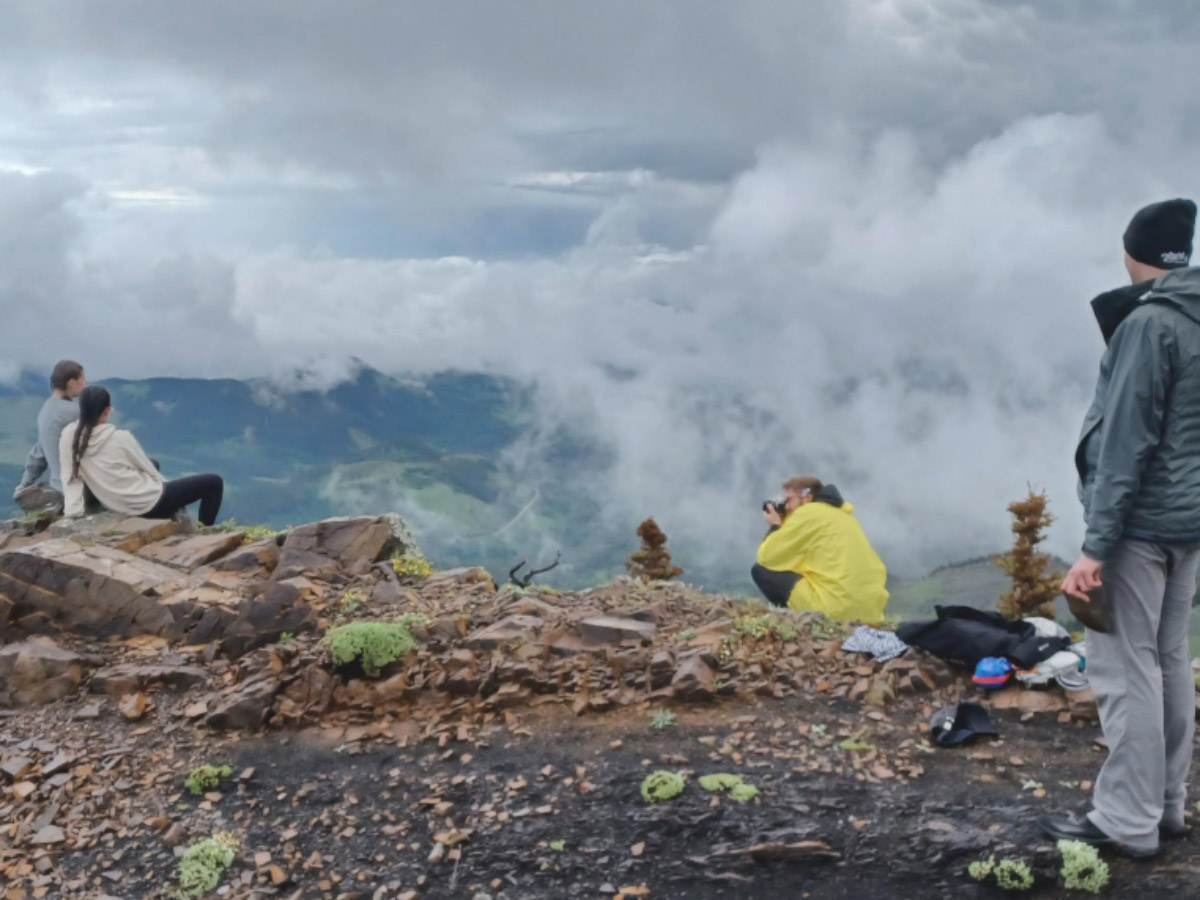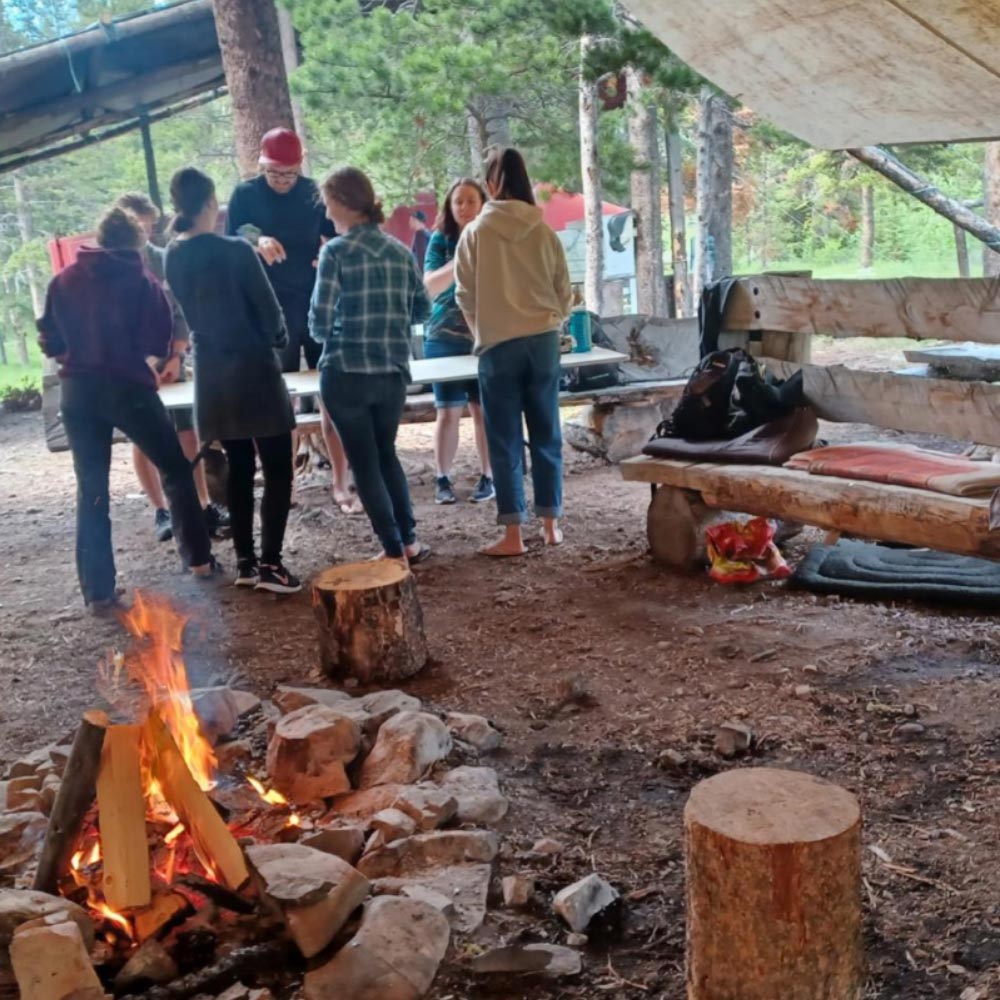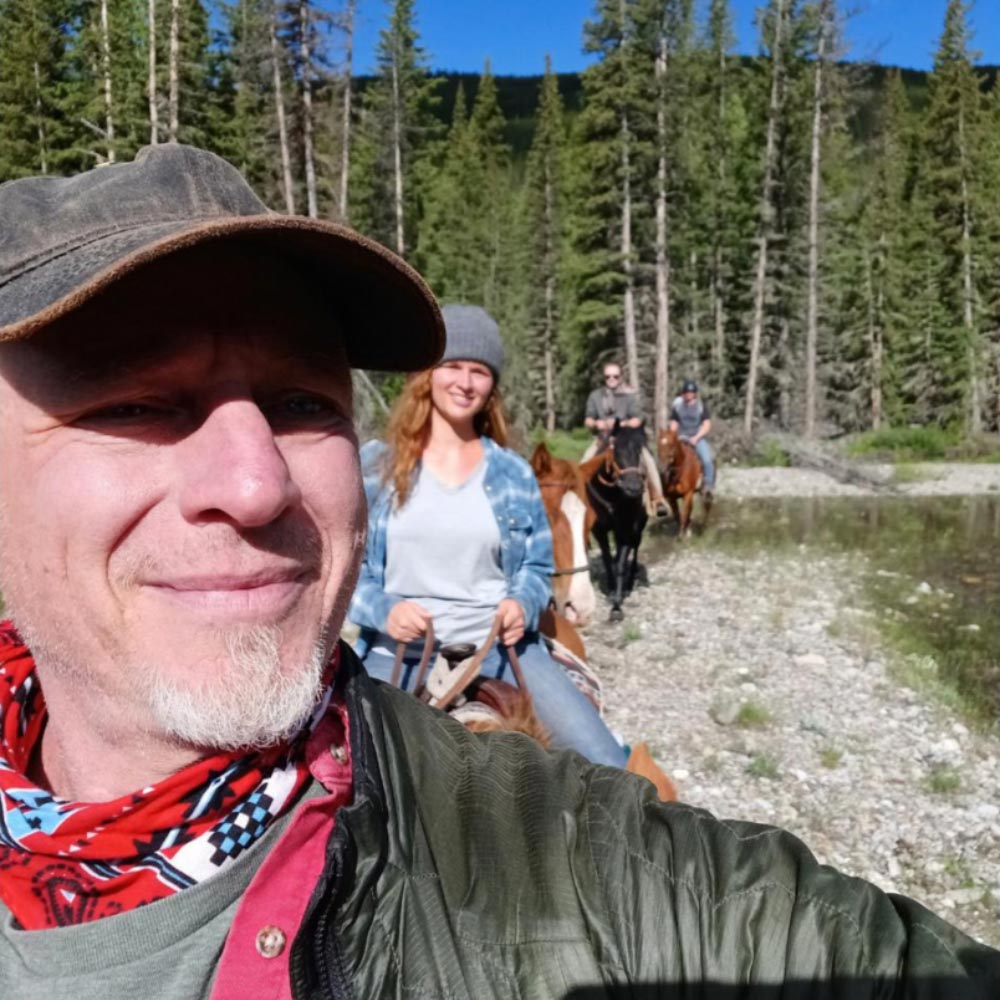
Risk-taking in the Canadian Wilderness

What first came to mind when I was invited to the “Canadian wilderness” to help lead a Wilderness Camp for adult third culture kids (ATCKs) this past July was the book Hatchet by Gary Paulsen.
In that story an adolescent boy is flying in a small prop plane to visit his father in Canada when the pilot has a heart attack and crash lands in a lake in a remote forest. The plane sinks, making rescue even more difficult, and the boy must survive using his wits and a hatchet, his parting gift from his mom. Cold, hunger, mosquitos, porcupines, a moose, (did I mention MOSQUITOS?), and other challenges make for a palpable, harrowing tale.
All spring I relished these thoughts: an adventure of “humans against the elements” with a group of young adult TCKs and ATCK co-leaders who “got it.” Overcoming challenges together is a great way to bond quickly, and with other ATCKs, I knew those bonds could form quickly in the right setting. Having grown up in the mountains of Vermont and in the highlands of Kenya, hiking, camping, paddling, and climbing in wild places is revitalizing to me.
We were headed into all the key elements of adventure: horseback riding, rock climbing, kayaking, and hiking in the mountains where elk, moose, and grizzly bears roamed, living in tents that had just been resurrected after a literal crushing storm. In between, we would split wood and help with cooking, and immerse ourselves in outdoor life—axe throwing and bonfires, outhouses (let’s be real) and camp cooking, fast changing weather, and the sweetest air you could imagine. For me, that kind of life isn’t about a contest so much as it is about finding harmony with elements that can give wonderful gifts and can also kill you. Risk in its essence.
Even getting there was challenging: two flights to arrive in Calgary, an overnight in the home of a friend of a friend, then a five-hour drive up into the Blue Bronna Wilderness. On July 1st, as we approached the last fifty kilometers, entering gorgeous valleys and increasingly dramatic geology, our trip leader, Ben (an ATCK himself) said, “Go ahead and text or call your family; in a few kilometers the only cell coverage will be at the top of one of these mountains.” After leaving a message for my wife and texting my kids the connection was gone. And then it began to snow—in July. Really.
The soon-arriving ATCKs had similar stories: mud, rough roads, a broken bumper and headlight, and several other multi-hour delays that resolved themselves finally with everyone fed and warm around a fire, under cover of a high canvass roof. Ben had beautifully crafted our opening so that we established a sense of welcome, care, safety, and an invitation to transparency and vulnerability.

After a deeply chilling night, despite the small wood stoves in the ten-person tents, the day began with “cowboy coffee”—hot, strong, and black. Breakfast around the fire, music, sharing stories, affirming the story-sharers, a short encouragement, and then solitude-protected, intentional time to be alone with our thoughts, our senses, and our spirit. We encouraged each person to remember and to connect with themselves and also to that which is much bigger than ourselves: nature and the eternal Mind and Spirit.
After lunch (prepared by angelic volunteers who coordinated meals all week!), some campers split wood, some hiked a waterfall, and others took to horseback—learning to curry, saddle, and ride a diverse stable of mounts. My first day was on a sassy, black Morgan mix and she was strong, sure-footed, and fearless, even when the lead horse shied from grizzly bear scat on the trail. I felt sure that if there were a need, she and I could outrun a grizzly. Fortunately (or disappointingly?), attempting such a feat was not necessary.
Our days fell into a rhythm of solitude, community, and challenges to overcome, on the banks of a frigid mountain stream under skies that went from sunny to cloudy to rain and back in quick succession and were slathered in stars at night.
As third culture people often do, we quickly established rapport, told each other stories, shared talents in art (charcoal drawings), music (guitars, cajon, and voices), wilderness skills, and pure courage (two women immersed themselves first in the iciest stream this side of the Arctic… and liked it).

It was at this point, still early in the week, that real personal RISK raised its dreadful, wonderful head—and it wasn’t about the grizzlies, or the rock climbing, or the fog that enveloped our hike as we approached some cliffs. Not only were “life stories” being shared, but we began to talk to each other—on hikes, around the fire, currying horses—about our lives, our hurts and traumas, our joys, sorrows, and agonies, our beliefs, and our lived experience.
Our sharing, still peppered with laughter, took deep and bumpy paths around abuse, gender and sexual attraction, confusion over local and global politics, questions of faith or the lack thereof. One on one, in small groups, or all together, we listened to each other pour out, through tears, tales that included crushing loneliness, anxiety, depression, and harmful coping strategies. Marvelously, in the next breath, there were also stories of rescue, redemption, belonging, healthy coping and healing. Somewhere between were the ongoing narratives of doubt and delight, fear and courage, searching for answers, and sometimes getting glimpses of what could be insight. We acknowledged the struggle that is life and the particular struggles encountered by people like us who grow up mobile and cross-cultural. Together, we confessed our limits and mistakes, and celebrated our gifts and victories.
 In the end, the big risk was not so much facing the Canadian wilderness; the risk was in trusting each other with our stories; opening up some windows in our souls to allow others to really see us, to share empathy and curiosity and care. From my perspective, there were powerful rewards. We left with new friendships—people who could show up at our door knowing they would be welcomed, fed, sheltered, and celebrated. There was new freedom, a sense that one could be known and loved, regardless of the scars one carries. And there was relief in knowing that not one of us is alone in this crazy wilderness of life, even when we feel, metaphorically, like we are on the back of a horse we just met, in the middle of a rain-swollen river, surrounded by potential friends, getting our feet wet.
In the end, the big risk was not so much facing the Canadian wilderness; the risk was in trusting each other with our stories; opening up some windows in our souls to allow others to really see us, to share empathy and curiosity and care. From my perspective, there were powerful rewards. We left with new friendships—people who could show up at our door knowing they would be welcomed, fed, sheltered, and celebrated. There was new freedom, a sense that one could be known and loved, regardless of the scars one carries. And there was relief in knowing that not one of us is alone in this crazy wilderness of life, even when we feel, metaphorically, like we are on the back of a horse we just met, in the middle of a rain-swollen river, surrounded by potential friends, getting our feet wet.
It was absolutely glorious; I can’t wait for next summer.
Want to learn more? Visit: Wilderness ReBoot 2023
* This article was originally published in Among Worlds magazine, December 2022 and has been republished with permission. You can find the original piece here: https://amongworlds.interactionintl.org/risk-taking-in-the-canadian-wilderness/.
 Michael Pollock, an adult TCK with Kenya, US, South Africa, and England a part of his developmental years, has also been an educator in the US and China. He leads Daraja, meaning “bridge” in Swahili, as a coach, advocate, and consultant for global TCK care. Michael is an author of Third Culture Kids: Growing Up Among Worlds (third edition). A dad of three amazing TCKs, he believes third culture people are uniquely and powerfully poised to impact the world for good.
Michael Pollock, an adult TCK with Kenya, US, South Africa, and England a part of his developmental years, has also been an educator in the US and China. He leads Daraja, meaning “bridge” in Swahili, as a coach, advocate, and consultant for global TCK care. Michael is an author of Third Culture Kids: Growing Up Among Worlds (third edition). A dad of three amazing TCKs, he believes third culture people are uniquely and powerfully poised to impact the world for good.